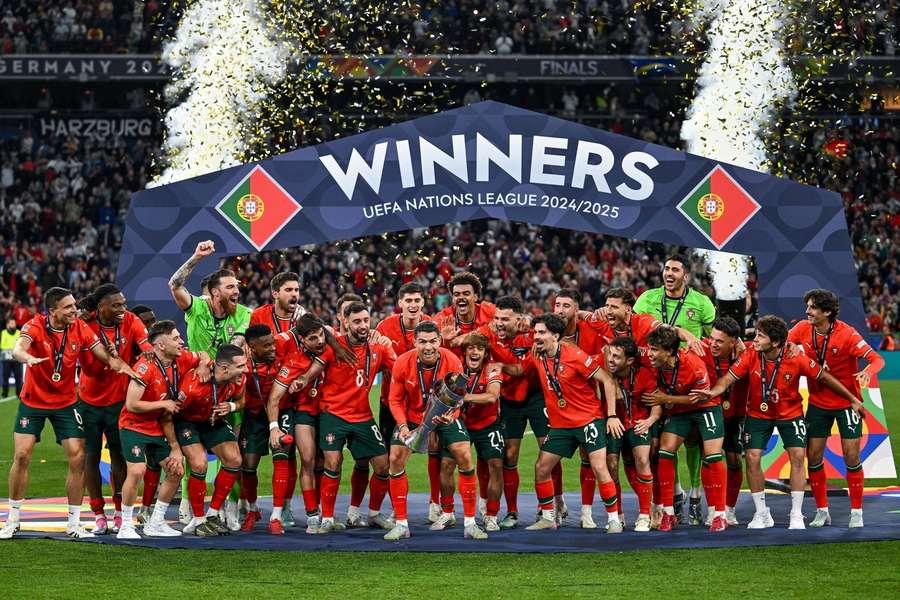Portugal 2026 World Cup Qualifiers: The Golden Generation’s Final March
Keywords: Portugal 2026 World Cup, Cristiano Ronaldo, Portugal national team, UEFA qualifiers, Roberto Martínez, Bruno Fernandes, João Félix, Rafael Leão, Portugal football analysis

Introduction: The Last Dance for a Golden Era
The Portugal national football team enters the 2026 FIFA World Cup qualifiers
with both confidence and a sense of destiny. Having built one of Europe’s most talented squads over the past decade,
Portugal now stands at a crossroads — balancing between the experience of Cristiano Ronaldo
and the brilliance of a new generation led by Bruno Fernandes, João Félix, and Rafael Leão.
Under the leadership of Roberto Martínez, the Seleção das Quinas are focused on redemption, fluid football, and achieving what has long eluded them —
a deep World Cup run beyond the quarterfinals.
Tactical Evolution Under Roberto Martínez
Since taking charge after the 2022 World Cup, Roberto Martínez has reshaped Portugal into a more dynamic, attack-oriented side,
using a modern system that leverages both possession control and direct counterattacks.
- Formation: Flexible between 3-4-3 and 4-2-3-1.
- Build-up Play: Ball progression through Bruno Fernandes and Bernardo Silva’s creativity.
- Transition Play: Speed from Rafael Leão and João Félix tearing through defenses.
- Defensive Core: Stability from Rúben Dias and Pepe providing leadership at the back.
The tactical shift emphasizes pressing intensity, fluid movement, and technical dominance —
a blend of Spain’s control and Brazil’s flair, perfectly suited for Portugal’s modern talent pool.
Key Players: The Core of the Seleção
Portugal’s 2026 campaign will depend on the chemistry between its experienced leaders and emerging stars:
- Cristiano Ronaldo – Still a decisive presence and emotional leader, targeting his record-breaking 6th World Cup appearance.
- Bruno Fernandes – The creative engine who dictates tempo and scoring opportunities.
- Bernardo Silva – A master of intelligence and control in tight spaces.
- Rafael Leão – Portugal’s explosive winger, capable of changing a game in seconds.
- João Félix – A flair-driven forward whose freedom under Martínez has revived his confidence.
- Rúben Dias – The defensive general, ensuring composure and structure from the back.
Together, they form one of Europe’s most complete and balanced national teams — a mix of experience, flair, and tactical flexibility.
Strengths and Weaknesses
Strengths
- World-Class Midfield and Attack – Portugal’s depth in creativity and finishing is unmatched in Europe.
- Versatility – Ability to switch between formations seamlessly during matches.
- Winning Mentality – The Euro 2016 champions know how to grind out results.
Weaknesses
- Overreliance on Ronaldo – Despite his greatness, balancing his role with emerging stars remains key.
- Defensive Aging – Veteran defenders like Pepe nearing the end of their international careers.
- Pressure in Big Games – Portugal occasionally struggles to maintain composure in knockout matches.
Road to Qualification
Portugal’s qualification path in the UEFA zone has been dominant so far —
winning matches with convincing performances and high goal tallies.
Facing opponents like Slovakia and Luxembourg, Martínez’s side has showcased not only efficiency but also entertainment.
The next phase will test Portugal’s consistency and adaptability, especially against higher-ranked sides in the later rounds.
A top finish in their group seems inevitable if they maintain current form.
Emerging Talents to Watch
Portugal’s production line of young stars continues to impress.
Several players could play decisive roles by the time the 2026 World Cup arrives:
- Gonçalo Ramos – A clinical striker and heir to Ronaldo’s goal-scoring legacy.
- Vitinha – The new midfield maestro thriving under Spalletti’s mentorship at PSG.
- António Silva – A composed young defender already breaking into the national setup.
These players embody the future of Portuguese football — confident, technical, and fearless.